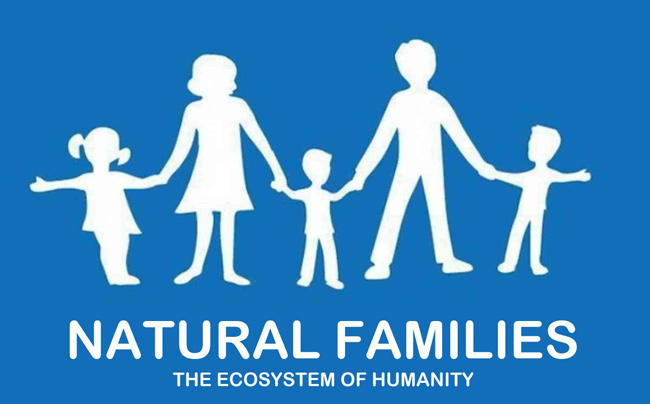 by James Kalb –
by James Kalb –
the loss of an understanding of human nature means a loss of understanding what marriage is: the physical, social, and spiritual union of a man and a woman.
Very recently the view that homosexuality is entirely normal has become not only widespread but compulsory in secular public discussion.
Leaders of thought tell us the change has been part of a general deepening of moral insight and improvement in the art of living. The older outlook oppressed millions out of fear, bigotry, and ignorance. We have learned better now, except for a few haters and dimbulbs who need to be re-educated or else shamed and shut up until death frees the world from their presence.
Many Catholic clergy, theologians, and ordinary believers more or less agree. We have been wrong, and if we don’t get with the program and accept the world’s guidance we’ll become irrelevant and vanish except for a few weirdoes no one sensible would want to associate with.
Such views have led to very high level suggestions that the Church “accept and value” the homosexual orientation and ramp up opposition to “unjust discrimination,” which now seems to include suggestions that there is something wrong with homosexuality. So any objection to the orientation, that it is objectively disordered, is now to be out of bounds. Inconsistent doctrine is to be treated as a hangover from the past to be dealt with in such a way as to neutralize it and effectively make it disappear.
To exacerbate the problem, most of those attached to the traditional view have difficulty arguing for it effectively. It seems plainly right to them, but why it is right cannot be stated in the terms on which public discussion is now carried on, which treat equal preference satisfaction as the highest good. The traditional view therefore comes to seem an irrational prejudice.
Still, the issue doesn’t go away. The older view continues to have distinguished proponents, and the vehement reactions to doubters suggests that supporters of the new view are conscious of a certain weakness in their position. Is something being overlooked? Can a sudden and total change of longstanding deeply-rooted understandings be trusted?
In an age of technology, wealth, and seemingly unlimited power they have forgotten human nature.
The change looks very much like an attempt to invert reality, an effort that once started becomes all-consuming and requires an ever more comprehensive system of lying to maintain. And the demands of correct thought are indeed becoming ever more far-reaching. Insistence that a relationship between two men is a marriage if they say the necessary vows has been followed by insistence that the men immediately become women if they announce they have. And that demand has been accompanied by attempts in the schools and elsewhere to get rid of indications of grammatical gender and other inflammatory expressions when dealing with children.
These supposed advances have been led not by saints and sages but by ideological activists, media propagandists, and other dubious characters. Supporters claim to speak for the “marginalized,” but are preferentially found among the rich, powerful, and well-placed, who evidently speak for themselves and those to whom they feel an affinity.
In that respect the movement is typical of modern politics, which promises liberation but delivers new forms of domination. The problem is basic. Today’s politics has no place for legitimate authority based on higher standards, so power must base itself on Choice, otherwise known as the Triumph of the Will. Hence the constant attempts to square the circle by identifying freedom with doing what we’re told. Earlier versions of the tendency gave us “people’s courts” and “people’s democracies.” Now we have bigoted tolerance and bullying anti-bullying campaigns. Whatever the slogan, the abolition of traditional patterns and transcendent standards means that the strongest, cleverest, and most unscrupulous win—supposedly on behalf of the innocent and defenseless.
Destruction is quicker and easier than legitimate development. The supposed improvement in the art of living is based on an inability to make distinctions, and its supposed benefits have included coarsening of culture and abandonment of marriage. Under such circumstances it looks very much like people have forgotten rather than learned something.
But what have they forgotten?
In an age of technology, wealth, and seemingly unlimited power they have forgotten human nature. The importance of that point passes educated people by. Human nature is so basic, and its influence so pervasive, that specialized expertise can’t deal with it effectively. It has to do with the basic patterns of life, and it’s impossible to force people to recognize patterns they don’t want to recognize. When pressed, they find ways of shrugging them off. People have choices, they can say, so if someone thinks the concept of human nature gives him something he can choose that thing and forget about the concept. If you like your marriage, you can keep your marriage, even after it’s been deprived of its basis in the nature of things.
Not so. In fact, the loss of an understanding of human nature means a loss of understanding what marriage is: the physical, social, and spiritual union of a man and a woman. Bringing forth new life is the natural function of such a union, so by its essential nature, based on the identity of the parties as man and woman, it is oriented toward very serious objective responsibilities that transcend personal interest and last a lifetime. If we realize what it is, we cannot ignore it or take it lightly. If we don’t, it can be whatever anyone wants, and in the end becomes impossible to take seriously.
Traditional sexual morality excluded sexual relations outside the marital union. When liberated from that limitation as a matter of principle, sex is stripped of its functions, becomes autonomous, and grows disruptive on account of its unruliness. Normalizing homosexuality and recognizing “gay marriage” establishes that liberation at the most fundamental level. The result is that it becomes impossible even in concept to give sex objective significance, or to understand marriage as a natural institution fundamental to society. Under such circumstances sex becomes a destructive rather than creative principle, and marriage a purely personal connection between two people for whatever purposes they find appealing.
Apart from fostering disordered lives, the liberation of sex from function and the conversion of marriage into a subjective and purely personal connection deeply affects social and political life.
It’s not just homosexuality and heterosexuality that must be accepted equally in the new order, it’s everything in between and off somewhere else. Masculinity and femininity can no longer be understood as substantive, functional, and complementary, and become arbitrary conceptions. The result is that masculinity cannot be civilized, nor femininity brought into an objective order in which the sexes cooperate in accordance with complementary strengths and make up for each other’s weaknesses. Loss of a working relation between the two principles means they become denatured or a parody of themselves: GI Joe and Barbie on the one hand, or various forms of androgyny on the other.
Under such circumstances children no longer have settled patterns of normal attitudes and behavior to grow into. Each must make up his own, taking his cues from peer pressure, pop culture, the strongest impulse, or the cleverest seducer. The body loses meaning, so young people become alienated from it, and express their alienation through tattoos, piercings, eating disorders, physical self-harm, and promiscuity.
Apart from fostering disordered lives, the liberation of sex from function and the conversion of marriage into a subjective and purely personal connection deeply affects social and political life. Family connections that lack an intrinsic function can no longer serve as an ordering principle but give way to money and bureaucracy. Career, fast food, and day care replace family. In the name of the weak, marginalized, and oppressed, human connections are fragmented and power flows to the top of the social hierarchy.
It seems clear that no humane person, and certainly no Catholic, can accept the new view of sex if he understands what is at stake. Such a claim sounds extreme today, since many nice people accept and live by that view. How can it be so bad if so many think it good? In our age of radical forgetting it seems that Catholics find themselves in the position they would have had in a Norse community full of brave, generous, and honorable fellows who saw marauding as basic to their way of life and identity as Vikings. They can praise what deserves praise in their surroundings, but must recognize that there is something basic missing from their neighbors’ outlook and way of life, and that the lack is acutely destructive.
HT: Crisis Magazine




